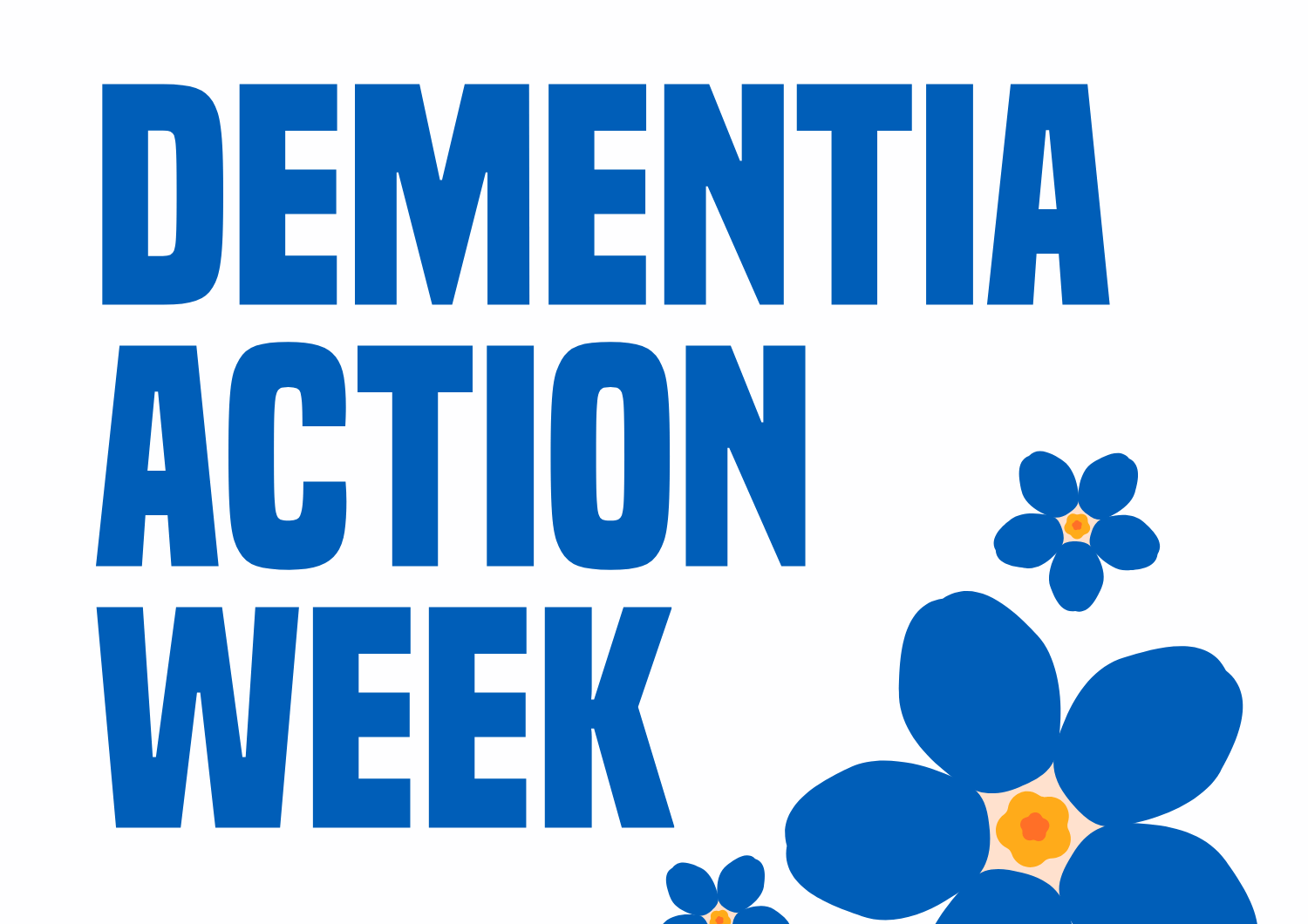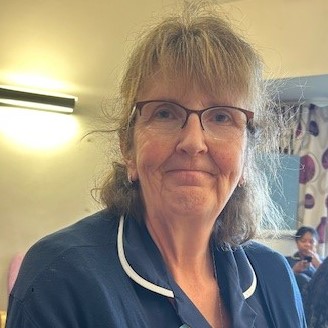
A nurse who supports people who have young onset dementia is encouraging anyone aged under 65 to seek help early if they suspect they have symptoms.
Advanced Nurse Practitioner Melanie Rolfe works for the Chelmsford Specialist Dementia and Frailty Service, run by Essex Partnership University NHS Foundation Trust.

She is raising awareness of the importance of early diagnosis for Dementia Action Week (19 to 25 May).
Dementia is not a normal part of aging, and is caused when a disease damages nerve cells in the brain. Symptoms get worse over time.
Statistics shared by the Young Dementia Network say:
- More than 70,000 people are living with young onset dementia in the UK and saw their symptoms begin before they were 65. This is 7.5% of the UK population who are diagnosed with dementia.
- Young onset dementia is more common in some minority ethnic communities than the population as a whole.
- People with a learning disability are at greater risk of young onset dementia. One in ten may develop Alzheimer’s disease between the ages of 50 to 65.
Melanie, who began specialising in dementia five years ago to improve access to care for younger people, said: “Young onset dementia is very under-reported and diagnosis can be delayed because there are lots of different symptoms that could be connected to other things.
“For example, this can particularly be the case with women who go to the doctors presenting with menopausal symptoms such as depression and anxiety.
“Symptoms can also be mild and people may not notice them at first. There doesn’t seem to be a particular point where people are picking up there is a significant decline in their health.
“The youngest patient I have ever seen is 34. At the moment it ranges between 50 and 65.”
Melanie said more awareness has been raised due to storylines in soaps such as EastEnders and Coronation Street, and the experiences of people in the public eye such as actors Bruce Willis and Pauline Quirke.
However, people who notice symptoms of dementia in themselves or their loved ones are still unlikely to seek help early.
A survey by the Alzheimer’s Society in 2023 found only 15% who were concerned about themselves or a loved one brought up the issue straight away.
Nearly a quarter of people waited more than six months before they spoke to a medical professional.
Melanie said: “Some of the symptoms to look out for are becoming repetitive, forgetful, may be becoming disorientated or driving somewhere but ending up somewhere completely different, loss of motivation, and personality changes.
“We talk more about depression and anxiety in younger people but sometimes these signs can be symptomatic of the beginnings of dementia.
“There’s lot of things that can happen that can be symptoms of dementia. There’s no one particular thing but there are 115 different types of dementia recorded at the moment.
“For a lot of young people they can often have rarer types and some can be genetic.
“If you have concerns it’s best to get it checked out.”
Melanie said it can be very hard for people to seek help and to accept a diagnosis. Families of people who are later diagnosed with dementia can also be reluctant to tell them about their concerns, and can also assume symptoms are just part of their personality.
Many will be working and have families, so the psychological, emotional and financial stress can become a vicious cycle, causing depression and anxiety that can impact their health further and exacerbate the progression of the disease.
Melanie, who has personal experience of loved ones with dementia, said: “Once we can get people to accept help and acknowledge it, they often say ‘I didn’t realise how much better I feel’ but there’s the perception that only old people get dementia and go to day centres.”
Melanie supports people who have been diagnosed, and her job mainly involves helping those who need day care, are experiencing crisis, or need to move into a care home.
The Alzheimer’s Society, Knightswood Day Care Centre in Althorne and Essex Dementia Care are among the voluntary organisations that Melanie works closely with who provide support for people with young onset dementia.
She said: “I am building connections with services, social prescribers and social workers who can support patients.
“I also work closely with specialist EPUT staff such as our occupational therapist who specialises in dementia safety. Their work includes helping people to stay safe during their day to day activities, such as at home and work, when out walking or driving, or cooking.
“This is important because I have patients who for example take their dog for a walk every day but can’t find their way home or have problems with their vision and spatial awareness.”
Anyone is concerned they may have symptoms of dementia should contact their GP in the first instance.
They may be referred to a memory clinic or specialist service.
Visit EPUT’s website for information about EPUT’s dementia services.
More information on symptoms, seeking a diagnosis, and support can be found on the following websites: